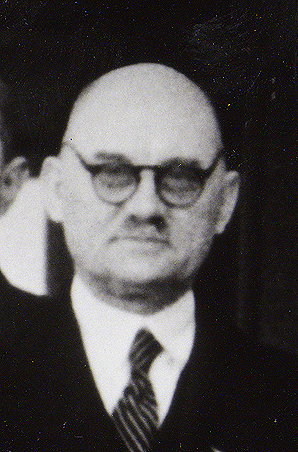Divinity Library
John H.D. Rabe

John H.D. Rabe
John H.D. Rabe (November 23, 1882 - January 5, 1949) was a German businessman whose Nanking Safety Zone sheltered some 200,000 Chinese from slaughter during the Nanking Massacre.
Born in Hamburg, Germany, Rabe pursued a career in business and went to Africa for several years. In 1908, he left for China, and, between 1910 and 1938, he worked for the Siemens AG China Corporation in Shenyang, Beijing, Tianjin, Shanghai and later Nanking.
On November 22, 1937, as the Imperial Japanese Army advanced on Nanking, Rabe helped to organize the International Committee and drew up the Nanking Safety Zone to provide Chinese refugees with food and shelter upon the impending Japanese slaughter. He explained his reasons thus: "...there is a question of morality here. I cannot bring myself for now to betray the trust these people have put in me, and it is touching to see how they believe in me." Although he tried to appeal to the Japanese by using his Nazi membership credentials, this had little effect.
On February 28, 1938, Rabe left Nanking, traveling to Shanghai and then back to Germany. He showed films and photographs of Japanese atrocities in lecture presentations in Berlin and wrote to Hitler suggesting that he use his influence to persuade the Japanese to stop any more inhumane violence. Instead, Rabe was detained and interrogated by the Gestapo, and his letter to Hitler was never sent. Due to the intervention of Siemens AG, he was released. He was allowed to keep evidence of the massacre, excluding his films, but was not allowed to lecture or write on the subject.
After the war, Rabe was denounced for his Nazi Party membership and arrested by the Russians first and then by the British. However, investigations exonerated him of any wrongdoing. He was formally declared "de-Nazified" by the Allies in June 1946 but thereafter lived in poverty. Rabe was partly supported by the monthly food and money parcels sent by the Chinese government for his actions during the Rape of Nanking.
His war-time diaries are published in English as The Good German of Nanking (UK title) or The Good Man of Nanking (US title) (original German title: Der gute Deutsche von Nanking).